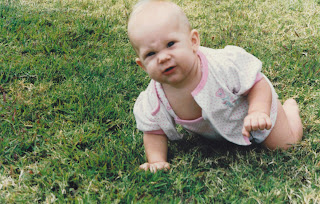Elementary Astronomy Lesson Plans
I've had a fairly unproductive summer. To be honest, I've struggled with a bit of depression--partly for a personal reason and partly because we lost our beloved parish priest to the inevitable diocesan shuffle. The change has been palpable. Our parish is no longer our home and we've pulled up roots there. Providentially, another parish we've become very involved in because it offers the Traditional Latin Mass on Fridays is now offering the TLM on Sundays. It's an hour long drive each way but it is very much worth it. I plan on devoting at least one blog post on the parish change but for now all I can say is "God is always good!"
As I've come out of my summer funk, I took several days and wrote an easy to follow elementary astronomy lesson plan for Leo, who will be in 3rd grade this year. I thought I'd share it here. You should be able to find all the necessary books at the library or on Amazon. All the labs listed come from Janice VanCleave's book Astronomy for Every Kid. Enjoy!
As I've come out of my summer funk, I took several days and wrote an easy to follow elementary astronomy lesson plan for Leo, who will be in 3rd grade this year. I thought I'd share it here. You should be able to find all the necessary books at the library or on Amazon. All the labs listed come from Janice VanCleave's book Astronomy for Every Kid. Enjoy!
Elementary Astronomy
Needed texts: The Usbourne Internet Linked Library of Science Earth and Space, Time Life Student Library The Universe, Seymour Simon's Stars, The Sun, The Moon, Mercury, Venus, Earth, Mars, Jupiter, Saturn, Uranus, and Neptune, Usborne Discovery Internet Linked Space, Exploring the Night Sky, Janice VanCleave's Astronomy for Every Kid, The Glow-in-the-Dark Night Sky Book, Explore and Learn Earth and Space
Week 1—The Universe
Day 1—Read Usbourne Earth and Space p. 4-9
Day 2—Read Universe p. 7-15
Week 2—The Stars
Day 1—Read Seymour Simon’s Stars
Day 2—Read Usbourne Earth and Space p. 32-33; do Lab p. 131 and 136-139
Week 3—Galaxies
Day 1—Read Universe p. 30-31 and Space p. 34-35
Day 2—Explore galaxy images online
Week 4—Our Solar System
Day 1—Read Universe p. 42-46; Learn “What makes a planet a planet”
Day 2—Read Usbourne Earth and Space p. 10-11; do Lab p. 52-53
Week 5—Our Sun
Day 1—Read Universe p. 48-51 (except about solar eclipses); do Lab p. 92-93
Day 2—Read Seymour Simon’s Sun
Week 6—Solar Eclipse
Day 1—Read Universe p. 48 and Space p. 38
Day 2—Lab p. 78-79
Week 7—Mercury
Day 1—Read Universe p. 54 and Space p. 22; do Lab p. 16-17
Day 2—Read Seymour Simon’s Mercury
Week 8—Venus
Day 1—Read Universe p. 56 and Space p. 23; do Lab p. 22-23
Day 2—Read Seymour Simon’s Venus
Week 9—Earth
Day 1—Read Universe p. 58; do Lab p. 28-29
Day 2—Read Seymour Simon’s Earth
Week 10—Our Moon
Day 1—Read Universe p. 60&62-63; do Lab p. 110-111
Day 2—Read Seymour Simon’s Moon
Week 11—Moon Phases and Lunar Eclipse
Day 1—Read Usbourne Earth and Space p. 39 & Universe p. 61; begin keeping a lunar phase calendar
Day 2—Lunar Eclipse Lab
Week 12—Mars
Day 1—Read Universe p. 64-66 and Space p. 24-25; do Lab p. 34-35
Day 2—Read Seymour Simon’s Mars
Week 13—Jupiter
Day 1—Read Universe p. 68-72 and Space p. 26; do Lab 34-35
Day 2—Read Seymour Simon’s Jupiter
Week 14—Saturn
Day 1—Read Universe p. 74-79 and Space p. 27; do Lab 44-45
Day 2—Read Seymour Simon’s Saturn
Week 15—Uranus
Day 1—Read Universe p. 80-81 and Space p. 28
Day 2—Read Seymour Simon’s Uranus
Week 16—Neptune
Day 1—Read Universe p. 82-83 and Space p. 29
Day 2—Read Seymour Simon’s Neptune
Week 17—Pluto
Day 1—Review “What makes a planet a planet”; discuss the debat; what do you think and why?
Day 2—Read Universe p. 84-85
Week 18—Astroids and Comets; Meteorites, Meteors, and Meteoroids
Day 1—Read Universe p. 86-91 and Space p. 30-31
Day 2—Read Universe p. 92-95
Week 19—Space Exploration
Day 1—Read Explore and Learn Earth and Space p. 70-79
Day 2—Lab p. 196-197
Week 20—Telescopes
Day 1—Read Usbourne Earth and Space p. 36-37
Day 2—Read Universe p. 96-101
Week 21—Identifying Stars and Constellations
Day 1—Use Glow in the Dark Night Sky book and Night Sky apps
Day 2—Visit a planetarium

Comments